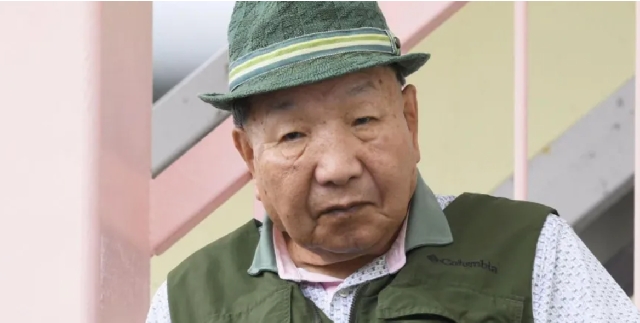World's longest-serving death row inmate acquitted in Japan
 Iwao Hakamada
Iwao Hakamada
An 88-year-old man who is the world’s longest-serving death row inmate has been acquitted by a Japanese court, after it found that evidence used against him was fabricated.
Iwao Hakamada, who has been on death row for more than half a century, was found guilty in 1968 of killing his boss, the man’s wife and their two teenage children.
He was recently granted a retrial amid suspicions that investigators may have planted evidence that led to his conviction for quadruple murder.
More than half a century spent on death row has taken a heavy toll on Hakamada's mental health, though, meaning he was unfit to attend the hearing where his acquittal was finally handed down.
Hakamada's case is one of Japan's longest and most famous legal sagas, and has attracted widespread public interest, with some 500 people lining up for seats in the courtroom in Shizuoka on Thursday.
As the verdict was handed down, Hakamada’s supporters outside the court cheered “banzai" - a Japanese exclamation that means "hurray".
Hakamada, who was exempted from all hearings due to his deteriorated mental state, has been living under the care of his 91-year-old sister Hideko since 2014, when he was freed from jail and granted a retrial.
He previously told the AFP news agency that his battle for justice was like "fighting a bout every day".
"Once you think you can't win, there is no path to victory," he said.
'Bloodstained' clothes in a tank of miso
A former professional boxer, Hakamada was working at a miso processing plant in 1966 when the bodies of his employer, the man’s wife and two children were recovered from a fire at their home in Shizuoka, west of Tokyo. All four had been stabbed to death.
Authorities accused Hakamada of murdering the family, setting fire to their home and stealing 200,000 yen in cash.
Hakamada initially denied having robbed and murdered the victims, but later gave what he came to describe as a coerced confession following beatings and interrogations that lasted up to 12 hours a day.
In 1968 he was convicted of murder and arson, and sentenced to death.
The decades-long legal saga ultimately turned on some clothes found in a tank of miso a year after Hakamada's arrest. Those clothes, purportedly bloodstained, were used to incriminate him.
For years, however, Hakamada’s lawyers argued that the DNA recovered from the clothes did not match his, raising the possibility that the items belonged to someone else. The lawyers further suggested that police could have fabricated the evidence.
Their argument was enough to persuade Judge Hiroaki Murayama, who in 2014 noted that "the clothes were not those of the defendant”.
Source: BBC
Trending World

BBC complains to Apple over misleading shooting headline
04:58
West Africa bloc meets as military rulers vow to quit
16:09
2024 African elections: Some ruling parties retain power, some suffer defeats
14:54
Human Rights Watch accuses Sudan’s RSF of rape, sexual slavery
04:06
Nigeria investigates nearly 800 suspects arrested in massive cybercrime raid
03:08
Storm Chido kills at least 7, leaves trail of damage in Malawi
03:05
More than 2 million Nigerians kidnapped in one year, survey finds
05:32
China counting on cyber-psychological cocktail to expand dominance
11:33
Mogadishu development project brings hope to Somalia
11:41
Myanmar ethnic rebels say they’ve captured junta western command
11:37



